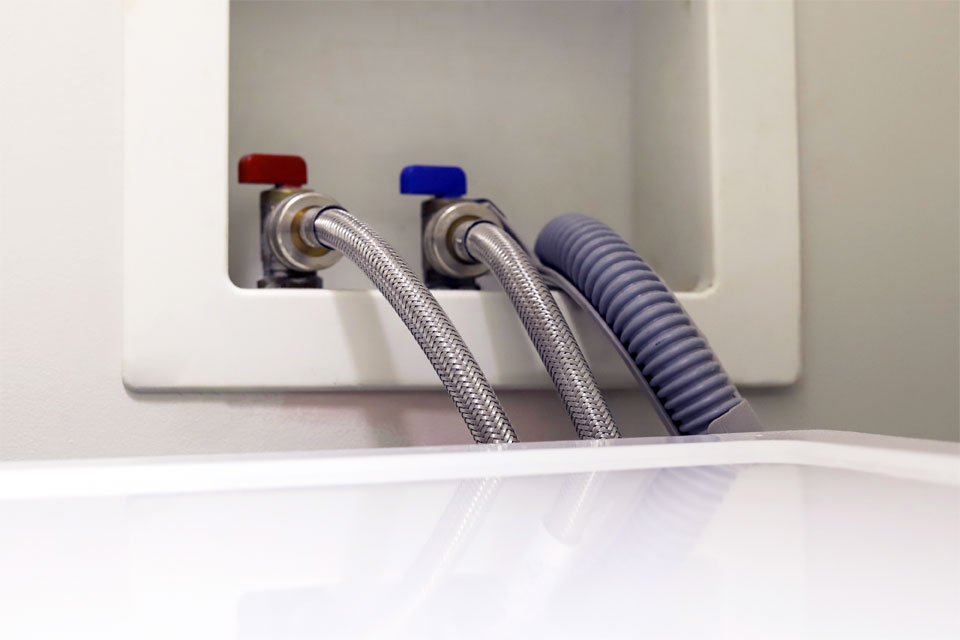Are Stainless Steel Washing Machine Hoses Better Than Rubber?


If you were to take a look behind your washing machine, you would find two types of hoses attached to your washer—an inlet hose and a drain hose. While these hoses may look small and unimportant, they are critical to the proper function of your washing machine.
The inlet hose connects your washing machine to a tap or valve that supplies clean water to the washer tub when you start a load of laundry. When the wash cycle is complete, the drain hose, which extends from your washing machine to a standpipe, drain, or tub, has the important role of guiding the now dirty water out of the machine into a drainage system.
Traditionally, these washing machine hoses have been made out of rubber. While rubber has some benefits, it also has several shortcomings that could lead to a substantial water damage claim for a homeowner. One of the most common issues that arises with a rubber washer hose is that it loses its flexibility and may end up cracking, tearing, kinking, twisting, puncturing, and/or bulging. In addition, rubber washer hoses are vulnerable to wearing down due to the minerals and chemicals often present in water.
If damage to a washing machine hose goes unnoticed, and the hose continues to be exposed to the constant high water pressure and temperatures of the washing machine, it may not be long before the hose springs a leak or simply bursts, potentially sending gallons of water pouring into your home.
The good news is that there is an alternative type of washing machine hose, made of braided stainless steel, that is far less likely to weaken, leak, and burst. While these washer hoses are a relatively new option, they have quickly gained popularity among homeowners and plumbers because they are:
Replacing your rubber washing machine hoses with braided stainless steel ones may cost a little bit more, but making the switch could minimize the potential for a failed hose and the expensive water damage to your home it can cause.
For added peace of mind and an extra layer of protection against home water damage, you may want to consider investing in a whole-home water shutoff and leak detection system. These systems monitor the irregularity of water flow and moisture throughout your home. If a problem is detected, the valve automatically shuts off the water supply.
For more tips and insights on safeguarding your home from water damage and other common property threats, such as fires, severe weather, break-ins, cyberattacks, and more, please check out our blog. At The Andover Companies, we are dedicated to helping you take exceptional care of one of your most important investments.
Click on the Find an Agent button to search for independent insurance agencies near you.
Contact the independent insurance agency you would like to work with by phone or email.
Leave it up to your agent to uncover the best coverage solutions for your valuable property.